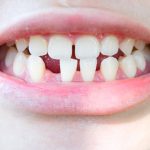Why Teeth are Chipping Easily and How to Prevent It: Expert Insights
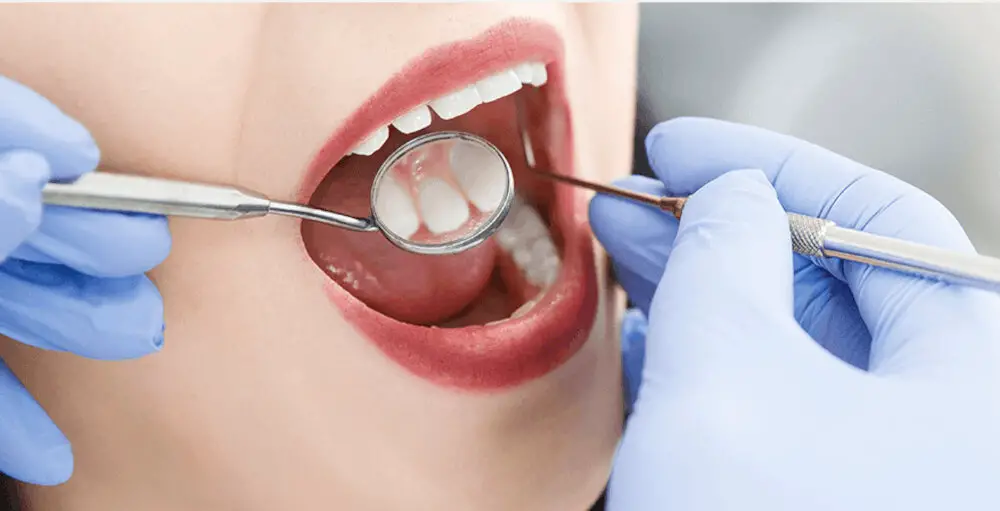
Teeth are one of the most important parts of the human body. Not only do they help us in chewing and digesting food, but they also play a crucial role in our appearance and overall health. However, many people experience the problem of chipped teeth, which can be both uncomfortable and unsightly. There are various reasons why teeth chip easily, and it is essential to understand them to prevent this problem from occurring. Factors such as poor dental hygiene, accidents, and certain medical conditions can contribute to the chipping of teeth. In addition, eating habits, such as consuming hard or crunchy foods, putting pressure on teeth through clenching or grinding, and using teeth as tools, can also contribute to this problem. Fortunately, there are several ways to prevent teeth from chipping, including maintaining good oral hygiene, wearing a mouthguard during sports or activities that may cause impact, and avoiding habits that put undue pressure on teeth. In this article, we will explore the reasons why teeth chip easily and provide expert insights on how to prevent this problem.
Causes of Teeth Chipping

Chipping of teeth is a common dental problem that affects individuals of all ages. The causes of teeth chipping can vary from person to person. One of the most common causes of teeth chipping is poor dental hygiene. Neglecting to brush and floss regularly can lead to the buildup of plaque and tartar on the teeth, which can weaken the enamel and make it more susceptible to chipping. Additionally, consuming sugary and acidic foods and beverages can also contribute to tooth decay and erosion, which can cause teeth to become brittle and prone to chipping. Another cause of teeth chipping is trauma to the mouth. This can occur due to accidents, falls, or sports injuries. When a person experiences trauma to the mouth, it can cause immediate damage to the teeth, such as chips or fractures. Additionally, grinding or clenching of teeth, also known as bruxism, can also cause teeth chipping. Over time, the constant pressure and friction can wear down the enamel and cause chips or cracks to form. In order to prevent teeth chipping, it is important to maintain good dental hygiene habits, wear protective gear during physical activity, and address any underlying dental issues, such as bruxism, with the help of a dental professional.
Grinding teeth, also known as Bruxism, is a common condition that affects many people, often without them realizing it. It involves the involuntary clenching, grinding, or gnashing of teeth, especially during sleep. Bruxism can cause headaches, jaw pain, and tooth sensitivity, and it can also lead to chipped or cracked teeth. Factors that contribute to bruxism include stress, anxiety, and an abnormal bite. To prevent chipped teeth caused by bruxism, it is recommended to use a mouthguard, practice stress-reducing techniques, and avoid chewing on hard objects such as ice or pens. Additionally, seeking treatment for underlying conditions such as anxiety or sleep disorders may also help alleviate the symptoms of bruxism.
Chewing hard foods can cause damage to your teeth, especially if you have weak enamel or dental restorations. When you chew on hard foods like ice, hard candy, or popcorn kernels, you expose your teeth to excessive pressure that can lead to cracks, chips and even fractures. This can be particularly problematic if you have dental fillings or crowns, as they may also be damaged in the process. To prevent chipping, it is recommended to avoid chewing on hard objects, and if you must, try to use your back teeth and avoid biting down too hard. It is also important to maintain good oral hygiene habits and to visit your dentist regularly for check-ups to ensure that your teeth are in good condition.
Accidents and trauma are common causes of teeth chipping, and they can occur due to a range of activities, including playing sports, falling, and biting down on hard objects. When a tooth chips, it can be a painful and uncomfortable experience, and it can also affect the appearance of your smile. The best way to prevent teeth from chipping is to wear a mouthguard during physical activities, avoid biting down on hard objects, and seek dental care promptly if an accident or trauma occurs. In addition, maintaining good oral hygiene, such as brushing and flossing regularly, can help to strengthen your teeth and prevent them from becoming weak and prone to chipping.
Acidic beverages, such as soda, energy drinks, and fruit juices, can be harmful to teeth and contribute to their chipping. These beverages contain high levels of acids that can erode the enamel, the outer layer of the teeth that protects them from damage. When the enamel is weakened, the teeth become more susceptible to chipping, cracking, and breaking. To prevent this from happening, it is recommended to limit the consumption of acidic drinks, and when consumed, drink them through a straw to reduce contact with teeth. It is also important to rinse the mouth with water after consuming acidic beverages to help neutralize the acid and prevent it from causing further damage.
Symptoms of Teeth Chipping
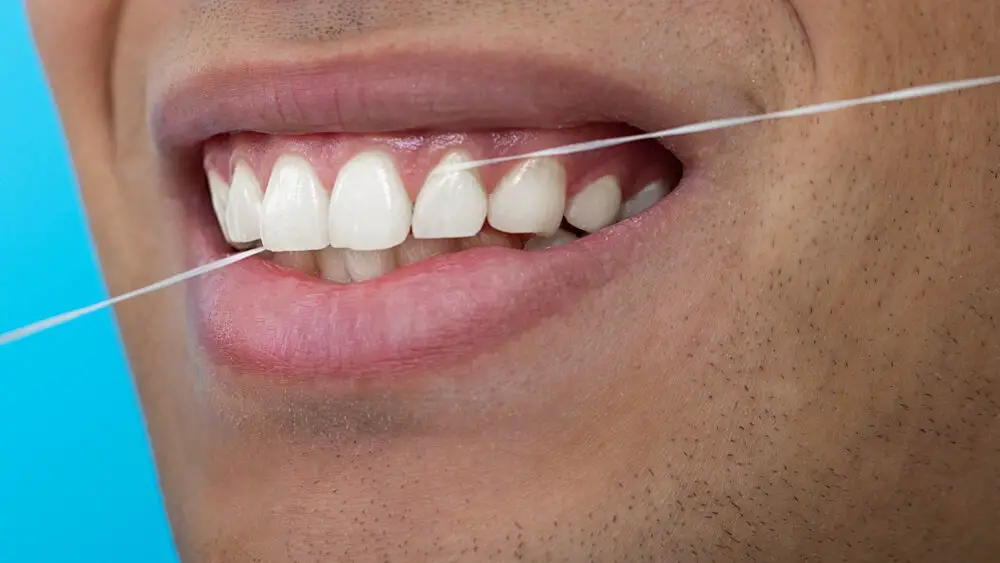
Teeth chipping is a common dental issue that can occur due to various reasons, including poor oral hygiene, teeth grinding, biting hard objects, and tooth decay. The most apparent symptom of teeth chipping is visible cracks or fractures on the surface of the teeth. This can cause discomfort and sensitivity, especially when chewing or drinking hot or cold liquids. If left untreated, chipped teeth can lead to further oral health problems, including infections and tooth loss. Additionally, chipped teeth can also affect one’s self-esteem and confidence in their appearance, leading to social anxiety and other psychological issues. Other symptoms of teeth chipping include toothache, pain when biting or chewing, swelling or inflammation of the gums, and difficulty speaking or eating. In some cases, the chipped tooth may expose the inner layers of the tooth, causing excruciating pain and sensitivity to hot and cold temperatures. If you experience any of these symptoms, it is vital to seek dental treatment immediately. Your dentist may recommend various treatment options, including dental bonding, crowns, or veneers, depending on the severity of the chipping. Preventative measures, such as regular dental check-ups, brushing and flossing, and wearing mouthguards during sports, can also help prevent chipping.
Sensitivity to hot and cold is a common dental problem that causes discomfort and pain in the teeth. It is often caused by the exposure of the tooth’s root or dentin to extreme temperatures. This can happen due to a variety of reasons including tooth decay, gum disease, trauma, or even overzealous brushing. When the protective enamel layer of the tooth is worn down or damaged, the underlying dentin becomes exposed, making the tooth sensitive to hot and cold temperatures. To prevent this, it is important to maintain good oral hygiene practices, avoid acidic and sugary foods, and visit the dentist regularly for check-ups and cleanings. Additionally, using toothpaste designed for sensitive teeth can help to alleviate discomfort and prevent further damage to the tooth enamel.
Rough or sharp edges on teeth can lead to a host of dental problems, including chipping, cracking, and decay. Often caused by teeth grinding, poor oral hygiene, or even genetics, these rough edges can weaken the enamel and make teeth more susceptible to damage. In addition to causing discomfort and pain, chipped teeth can also negatively impact your appearance, self-esteem, and overall oral health. Fortunately, there are several preventative measures you can take to avoid rough or sharp edges on your teeth, such as practicing good oral hygiene, wearing a mouthguard while sleeping, and avoiding hard foods or objects that can damage your teeth. By taking these steps, you can keep your teeth healthy, strong, and beautiful for years to come.
Pain while biting or chewing is a common sign of dental problems that can lead to chipped teeth. This type of pain can be caused by a number of factors, including tooth decay, gum disease, and teeth grinding. When teeth are chipped, it can cause serious discomfort and even lead to infection if left untreated. To prevent teeth from chipping easily, it’s important to maintain good oral hygiene habits, including brushing and flossing regularly, as well as seeing a dentist for regular checkups and cleanings. Additionally, avoiding hard or crunchy foods and wearing a mouthguard during physical activities can also help protect teeth from damage.
Visible chips or cracks on teeth can be a sign of dental damage and can occur for a variety of reasons. One common cause is grinding or clenching of teeth, which can weaken the teeth and cause cracks or chips to develop. Another cause is poor dental hygiene, which can lead to decay and weaken the structure of the teeth. Trauma to the mouth, such as a fall or injury, can also result in chips or cracks. In order to prevent this issue, it is important to maintain good dental hygiene habits such as regular brushing and flossing, as well as wearing a mouthguard during physical activity. Additionally, avoiding hard foods and candies and reducing stress can help minimize the risk of dental damage. If you notice any chips or cracks on your teeth, it is important to see a dentist as soon as possible to prevent further damage and address any underlying issues.
Prevention of Teeth Chipping
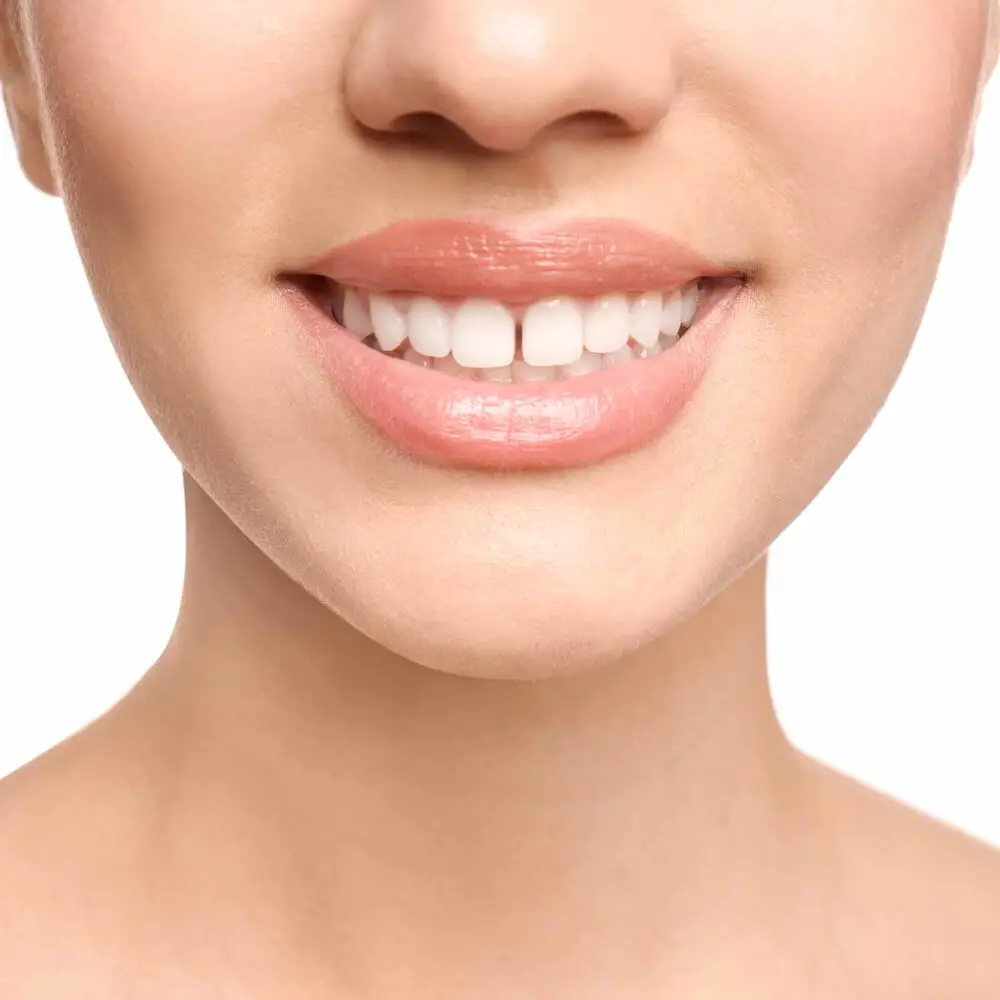
Teeth chipping is one of the most common dental problems that people face. It can happen due to a variety of reasons, such as injuries, accidents, or even poor dental hygiene. However, there are several ways to prevent teeth chipping and maintain a healthy and beautiful smile. One of the most important things is to avoid biting or chewing on hard objects, such as ice, popcorn kernels, or pens. These items can easily damage your teeth, leading to chipping and cracking. Instead, opt for softer foods and snacks that won’t put undue stress on your teeth. Regular dental checkups and cleanings are also crucial for preventing teeth chipping. A dentist can detect any early signs of damage or decay and treat them before they become more serious. Additionally, they can provide advice on proper dental hygiene, including brushing and flossing techniques, as well as recommend any necessary treatments, such as dental bonding or veneers. By taking good care of your teeth and seeking professional help when needed, you can prevent teeth chipping and maintain a healthy and beautiful smile for years to come.
Wearing a mouthguard is a crucial preventive measure to avoid chipping teeth while playing sports. It is a simple yet effective way to protect your teeth from unexpected blows and collisions. Whether you are playing contact sports or non-contact sports, a mouthguard can significantly reduce the risk of dental injuries. The right mouthguard should be made of durable material, comfortable to wear, and fit snugly in your mouth. It is essential to replace your mouthguard regularly, especially if it shows signs of wear and tear. By wearing a mouthguard, you can enjoy your favorite sports without worrying about damaging your teeth.
One of the most common reasons why teeth chip easily is due to chewing hard foods or ice. Teeth are designed to withstand the force of biting and chewing, but exposing them to hard objects can cause them to weaken and eventually break. This can be especially true for teeth that have already been weakened by decay or fillings. To prevent this from happening, it’s important to avoid chewing on hard objects like ice, hard candy, or popcorn kernels. Instead, opt for softer foods and cut up harder foods into smaller pieces before eating. By being mindful of what you chew, you can protect your teeth from unnecessary damage and avoid costly dental procedures.
Acidic beverages are one of the main culprits behind the chipping of teeth. Beverages such as soft drinks, energy drinks, and sports drinks contain high levels of acids that can erode the enamel on teeth, leading to chipping and cracking. To prevent this, it is essential to reduce or eliminate your intake of acidic beverages. Instead, opt for water, milk or unsweetened tea which contain fewer acids and are beneficial for overall oral health. Furthermore, if you cannot resist drinking acidic beverages, use a straw to minimize their contact with your teeth, and rinse your mouth with water after drinking to neutralize the acidity. Following these simple steps can help you maintain healthy teeth, and prevent them from chipping easily.
Maintaining good oral hygiene is essential to keep your teeth healthy and strong. Brushing your teeth twice a day is the cornerstone of good oral hygiene. Using a fluoride toothpaste and a soft-bristled toothbrush, gently clean all surfaces of your teeth for at least two minutes. Flossing at least once a day removes plaque and food debris from between teeth where a toothbrush cannot reach. Avoiding sugary and acidic foods and drinks can also help prevent the erosion of tooth enamel. Regular dental check-ups and cleanings can help detect and prevent any potential dental problems, such as cavities or gum disease, before they become more severe. By practicing good oral hygiene habits, you can keep your teeth healthy and prevent them from chipping easily.
Treatment for Teeth Chipping

Teeth chipping is a common dental problem that can be caused by various factors, including trauma, poor oral hygiene, and tooth decay. Fortunately, there are several effective treatments available to correct chipped teeth, depending on the severity and location of the damage. In minor cases, dental bonding or dental veneers can be used to restore the appearance and function of the damaged tooth. Dental bonding involves applying a tooth-colored resin material to the chipped area, while dental veneers are thin, custom-made shells that are placed over the front surface of the tooth to improve its appearance. Both procedures are non-invasive and can usually be completed in a single visit to the dentist. For more severe cases of teeth chipping, dental crowns or dental implants may be necessary. A dental crown is a cap that is placed over the damaged tooth, while a dental implant is a replacement tooth that is surgically implanted into the jawbone. Both options are more invasive than dental bonding or veneers, but they provide a more permanent solution for restoring the function and appearance of a chipped tooth. Your dentist will be able to recommend the best treatment option for you based on the extent of the damage, your oral health, and your personal preferences. It is important to seek prompt treatment for chipped teeth to prevent further damage or infection and to maintain good oral health.
Bonding is a dental procedure that involves the application of a tooth-colored resin material to the surface of a tooth. This resin material is then hardened using a special light, which bonds the material to the tooth. Bonding is a popular treatment option for many dental issues, including chipped or cracked teeth, gaps between teeth, and discolored teeth. The procedure is relatively quick and painless, and can often be completed in a single visit to the dentist. Bonding is also a more affordable alternative to other cosmetic dental procedures, such as veneers or crowns. However, it is important to note that bonding may not be as durable as other options, and may need to be replaced or repaired over time.
Dental crowns, also known as caps, are prosthetic devices used to cover damaged or decayed teeth. They provide a protective layer that effectively restores the function and appearance of a tooth. Crowns are typically made of porcelain or ceramic materials that are durable and long-lasting. They are custom-made to fit each patient’s unique tooth shape and size. Dental crowns can be used to treat a variety of dental issues, including chipped or cracked teeth, decay, discoloration, and misshapen teeth. By protecting the tooth from further damage and decay, dental crowns can help prevent teeth from chipping easily. Additionally, maintaining good oral hygiene practices, such as brushing and flossing regularly, can also help prevent tooth damage and prolong the life of dental crowns.
Veneers are a dental solution that can help to prevent teeth from chipping easily. These thin, custom-made shells are designed to cover the front surface of teeth and can be used to improve the appearance of teeth that are discolored, chipped, or misshapen. Veneers are typically made from porcelain or resin composite materials and are bonded to the teeth using a strong adhesive. By covering the front surface of the teeth, veneers can provide an extra layer of protection against chips and cracks. Additionally, veneers can improve the overall strength and durability of teeth, making them less likely to become damaged in the future. If you are experiencing issues with chipped teeth, veneers may be a viable solution to consider.
Dental implants are a popular solution for missing or damaged teeth. They are designed to look and function like natural teeth, and can provide a permanent solution for those who have lost one or more teeth due to injury, decay, or other reasons. The procedure involves surgically placing a small titanium post into the jawbone to serve as the new tooth root. Once the post has fused with the jawbone, a custom-made crown is attached to the post, creating a natural-looking and functioning tooth. Dental implants are known for their durability and longevity, and can last for many years with proper care. They can also improve the overall appearance of your smile and boost your confidence. If you are considering dental implants, it is important to consult with a qualified dental professional to determine if they are the right solution for you.
The prevalence of teeth chipping is a common dental issue that can be both frustrating and painful. Fortunately, by educating oneself on the root causes and warning signs of tooth chipping, individuals can take preventative measures to avoid the need for more extensive dental work. Some of the most common preventative measures include wearing a mouthguard during physical activity, avoiding chewing on hard objects or ice, and practicing good oral hygiene. In the event that teeth chipping does occur, there are a variety of treatment options available, such as bonding, veneers, and crowns, that can restore the appearance and function of the affected teeth. Overall, by being proactive and informed, individuals can take control of their dental health and prevent or address teeth chipping with confidence.
Conclusion
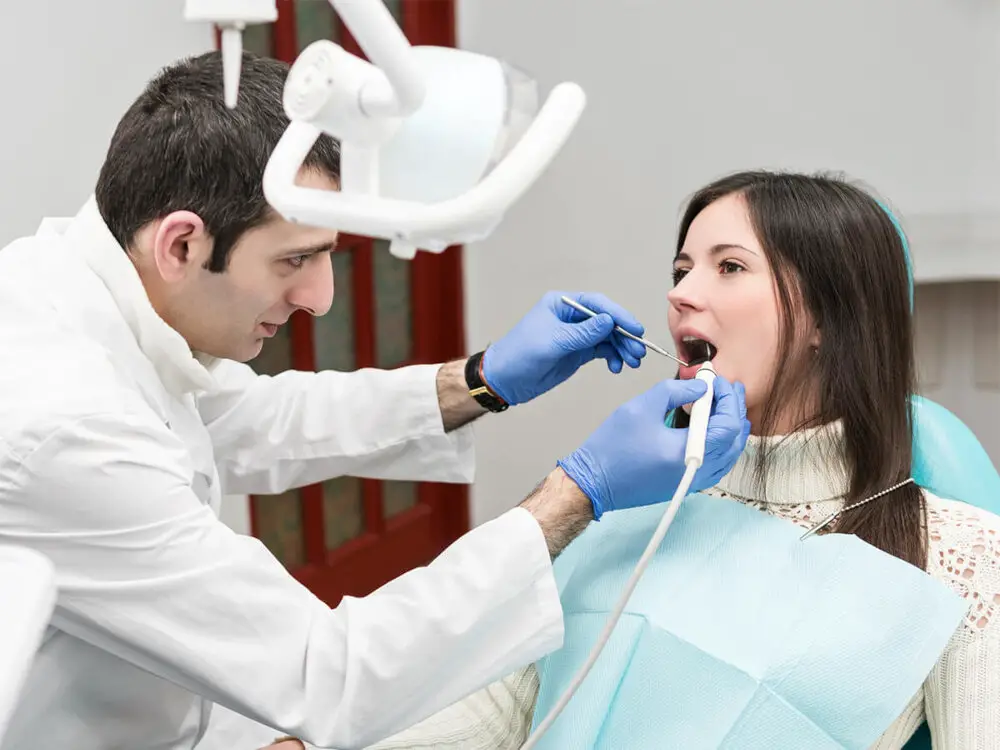
In conclusion, there are several reasons why teeth may be chipping easily, such as tooth decay, teeth grinding, and consuming hard foods or drinks. However, there are also many ways to prevent this issue, including proper dental hygiene, wearing a mouthguard, and avoiding harmful habits like nail-biting or chewing on ice. It is essential to take care of our teeth and seek professional help if necessary to maintain a healthy and beautiful smile. By understanding the causes and taking preventive measures, we can ensure the longevity and durability of our teeth and prevent any further damage or complications. Remember, prevention is always better than cure, so prioritize your dental health today!




